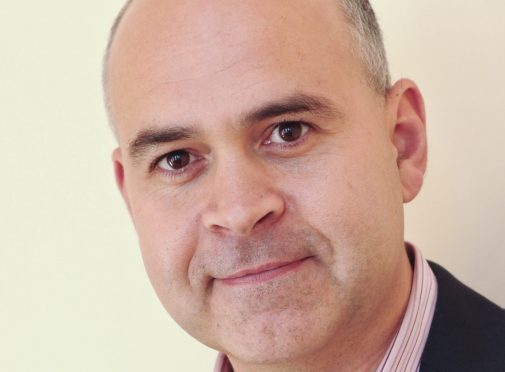Professor Ewan Gillon is a Chartered Psychologist and Clinical Director of First Psychology Scotland. Centres are located in Aberdeen and throughout Scotland.
Ask adults in their 30s and 40s about student life and many will recollect late nights, followed by late mornings, missed lectures, lost books and house parties. Fond memories of a carefree student life, finding one’s feet and learning to get on in the world. However, for most of those returning to uni this month, it couldn’t be further from their own experience. Today’s students are under huge pressure and not just from their professors. Many are going to need support from family and friends to help them cope and more importantly enjoy their university years.
Starting university or returning for the next academic year is a pivotal time: there’s excitement about seeing friends again and sharing a summer’s adventures; there is shopping to be done and there are classes to be selected; but this is also a time when stress levels rise for students and parents.
No matter their age or course of study, many students feel somewhat anxious or stressed when they return to university. Upcoming exams or presentations to be held in front of a whole class, fretting about meeting new people and having to forge new friendships, especially if the new academic year coincides with a change of location all add to the pressure. For those entering their final year, the pressure of finding a job afterwards will be mounting up.
Whilst some causes of anxiety and stress are more obvious than others, helping your child to cope starts with becoming aware of any changes in their behavior. And this can be difficult when they are away from home. Most students will feel some pre-university nerves, but if you as a parent notice bouts of insomnia, possibly alongside mood swings and changes in your child’s dietary habits you may be seeing more serious anxiety.
What can you do? It’s important to keep communications open to try to find out what stressors there are. Both parents and students can be guilty of having unrealistic expectations. Talk about what you and your child hope to achieve this year and how they are feeling, but make it clear that there is room for change and expectations are not set in stone.
Establishing structured and regular habits such as set mealtimes as well as sleep routines has been found to help anxiety sufferers. And whilst parents have little control over their child’s life once university starts, students are more likely to stick to their routine if it’s well established.
Consider your response to ‘bad news’ – a failed exam is not ideal, but often there are plenty of opportunities to make up grades, for example. Look for solutions together rather than dwelling on the problem itself and ensure your student knows you’re available to listen and discuss their issues.
Looking beyond university, many students graduate with sizeable debt, whether caused by tuition fees or living expenses. Scottish universities offer free tuition to Scottish students, but for those studying outside Scotland, student debt is a serious concern and has been found to impact on individuals long after graduation. Again, discussing this as an issue and setting up a solution now, such as a regular payment plan, might help remove the stresses related with ongoing debt accrual.
And if the prospect of going back to university still seems too daunting – consider allowing your kids to take some time out to volunteer or travel. Most universities allow some flexibility in their degree courses. Not only will they experience life outside of the university microcosm, but they will pick up skills that will prove helpful for the rest of their life.










